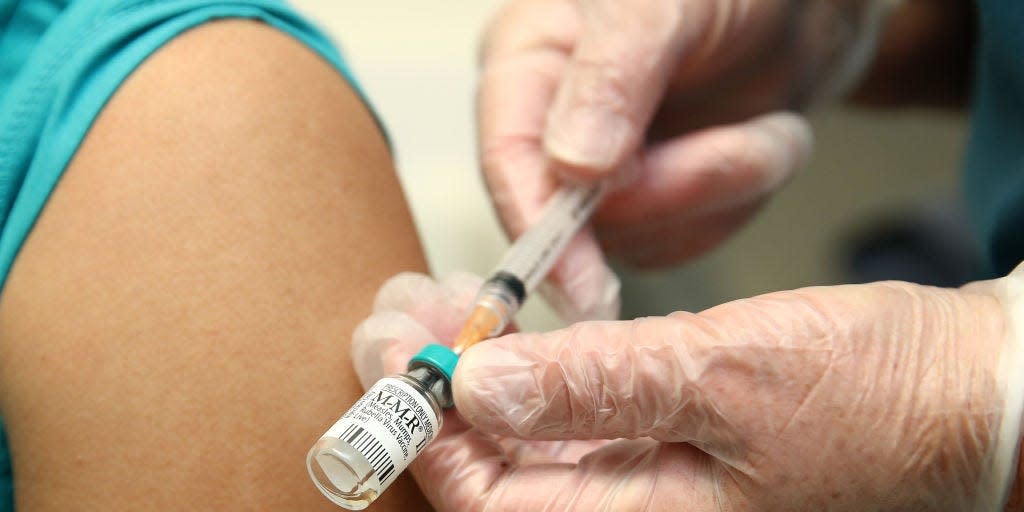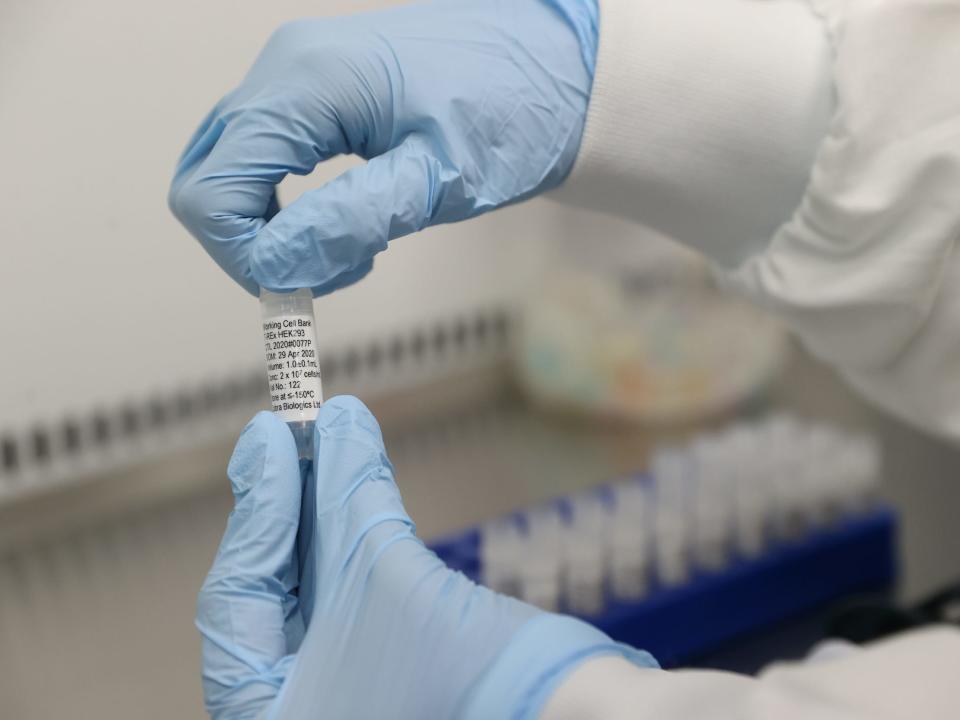More than 16,000 people have shown willingness to be intentionally infected with the coronavirus to speed up vaccine development

Fiona Goodall/Getty Images
More than 16,000 people have expressed willingness to be deliberately infected with the novel coronavirus to try to help bring about a vaccine faster.
The method of deliberately exposing people to a virus to test the effectiveness of a vaccine is called a human challenge.
There are ethical hurdles: The World Health Organization has previously said such methods could be effective but should not be used with pathogens that have high fatality rates and no cures or treatments.
The US Food and Drug Administration so far has not approved human-challenge trials for a COVID-19 vaccine.
More than 16,000 people have shown interest in volunteering to try to speed up vaccine development for the new coronavirus by being intentionally infected with the virus, CNN reported this week.
They would do so in what is known as a human-challenge study, a method that can expedite a vaccine's development because it directly exposes participants to the virus instead of waiting months to see how many vaccinated people become infected in their day-to-day life compared with a placebo group, according to CNN.
According to the World Health Organization, human-challenge studies are not required for every vaccine's development but can be requested in some cases.
"Animal models are often quite imprecise in reflecting human disease, and many infectious organisms against which a developer might wish to develop a vaccine are species-specific for humans," WHO wrote in a 2016 report on human-challenge models.
There are ethical hurdles in this case, however, as WHO said in the report that the method should not be used for pathogens with high fatality rates or no treatments.
"For example, if an organism causes a disease with a high case fatality rate (or there is a long and uncertain latency period) and there are no existing therapies to prevent or ameliorate disease and preclude death, then it would not be appropriate to consider human challenge trials with such an organism," WHO wrote.

Carl Recine/Reuters
The idea of using a human-challenge trial for COVID-19 was sparked by a March 31 article in the Journal of Infectious Diseases, CNN reported.
The article argued that while such a study would pose risks to its participants, "every week that vaccine rollout is delayed will be accompanied by many thousands of deaths globally."
"It's an idea that is controversial when people hear about it for the first time," the bioethicist Nir Eyal, who coauthored the paper, told CNN. "However, we show that if you select people in the right way and conduct the trial in the right way, it's surprisingly low risk and certainly within the bounds of what we already approve."
Now, more than 16,000 signatories from 102 countries have signed on to a nonbinding statement on a new advocacy website called 1 Day Sooner that said "I am interested in being exposed to the coronavirus to speed up vaccine development."
According to CNN, most of the signatories were young adults. It interviewed Abie Rohrig, a 20-year-old college student from New York, who said he was interested in participating "for the benefit of humanity."
The advocacy site also quoted anonymous signatories who described wanting to help bring about a vaccine quickly.
"I'm a young, healthy student and want to help develop a safe vaccine quickly, and am happy to volunteer to be part of this process," one signatory was quoted as saying. "The importance of this outweighs personal risks in my opinion."
Even if the vaccine were to work, a human-challenge study of the novel coronavirus would almost certainly give some participants COVID-19 since there would most likely be a placebo group as well.
That means that while the method could bring about an effective vaccine more quickly, it also presents risks. The virus, though far more severe in the elderly and those with underlying health conditions, has been associated with deaths or complications in young adults as well. Its full effects are unclear, and treatment options are limited.
Numerous promising vaccine trials and medications for COVID-19 are being developed or trialed around the world. If such a study were to move forward in the US, it would need to be approved by the Food and Drug Administration.
Read the original article on Business Insider

